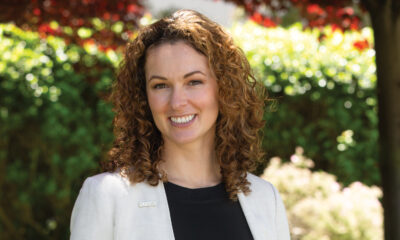FIRST, KIM RIVERS made Trulieve the top dog in her home state’s medical market. Now one of the most successful CEOs in cannabis has the entire country in her sights.
She believes in planning the work and working the plan—and it’s paying off for investors in Trulieve Cannabis Corporation. Rivers was instrumental in taking the Tallahassee, FL-based multi-state operator (MSO) public on Sept. 27, 2018.
Today, Trulieve’s stock is one of the few cannabis issues that trades above its IPO price.
Much of the credit for that goes to its co-founder, chair and CEO.
Trulieve’s founding partners include three commercial nursery operators, each with 30 years of experience, as required by Florida’s unique medical cannabis regulations. Rivers’ background isn’t horticulture, but the law. A lawyer with M&A experience and an entrepreneurial spirit, she took the reins of Trulieve in 2016.
Months on the road researching the nascent industries in California and Colorado convinced Rivers to jump into the cannabis industry. Her determination to keep Trulieve focused on the uniquely profitable Florida medical market led to 17 consecutive quarters of profitability as a public company.
That adherence to the plan eventually gave Trulieve the financial wherewithal to go national. Some of that expansion has been organic, some purchased. Trulieve is the biggest cannabis operator in Florida, with 114 dispensaries and more opening regularly. The company’s biggest move to date was acquiring Harvest Health and Recreation’s mostly Arizona-based retail operations in 2021. Trulieve has also gone big in Pennsylvania and currently has retail stores in eight states total, as well as operations in 11 states total, as Rivers and her team execute a plan to build out regional hubs across the United States.
Global Cannabis Times recently caught up with Kim Rivers in Tallahassee to learn from her success and get her views on where the company, and the industry, go from here.
About the interviewer: Tom Zuber is the Managing Partner of the law firm Zuber Lawler, which has been representing leading plant medicine companies for over 15 years.
TOM ZUBER: Hello, Kim! Our mission with these interviews is to inspire people by helping them get to know the executives who really move the global cannabis industry. Let’s start with the basics. Where’d you grow up?
KIM RIVERS: I grew up in Florida. Born and raised in Jacksonville. Not very far from where we are here in Tallahassee, just a couple hours. I am the daughter of a police officer and an assistant principal of an elementary school. I had a little bit of a rebellious streak growing up, but I had great role models in both of my parents.
Let’s talk about your folks. A police officer and an elementary school assistant principal. That sounds like a very strict household! How did this upbringing influence your approach to becoming the CEO of a multi-billion-dollar company?
So it’s funny that when I sat down with my dad to talk about me entering the cannabis space, he said, “Well, that sounds great. Go get ’em, girl!”
I just looked at him. I said, “Really? That’s your answer?” And he said “Kimmy, I learned a long time ago with you, you’re gonna do it anyway. I just want to be supportive and cheer you on as best I can.”
And we had a long conversation around how silly he thought it was, how many resources and how much energy that he and other officers were required to put forth with respect to pursuing and making arrests of low-level cannabis offenders.
It was a great kind of pivot point and great to really hear firsthand from him how he believed in what I was doing.
You received a law degree from the University of Florida, correct? You’re a lawyer?
Yes. At one point, I wanted to practice law around M&A and securities.
How did you move from the law to the legal cannabis industry?
It’s interesting. As I said, I loved M&A. I liked securities work as well, but I really enjoyed working on deals. For me, it was the thrill of getting to know a company and understanding an industry and really getting to know the nuances that drive decisions in an industry. But after a while, after practicing law, I knew I wanted to get over to the other side of the table.
From your legal perspective, what legal issues were the biggest surprise or burden to you, in the context of the cannabis industry?
Oh, my gosh, I could probably have an entire interview about just that! I think that one thing that continues to kind of catch me off guard, even today, is the lack of resources or the increased cost of resources, due to the nature of the fact that we have a cannabis business.
The cost of doing business is ridiculous. And it’s because of the quote, unquote increased risk we represent to insurers, etc., when we all know—and particularly for our company—at this point the risk in this business is significantly reduced. In fact, I would call it minimal. You know, I don’t expect the DA to show up and raid our facilities anytime soon. Which is, to be fair, quite a change from where things were when we started eight years ago, when there was more uncertainty about those types of things.
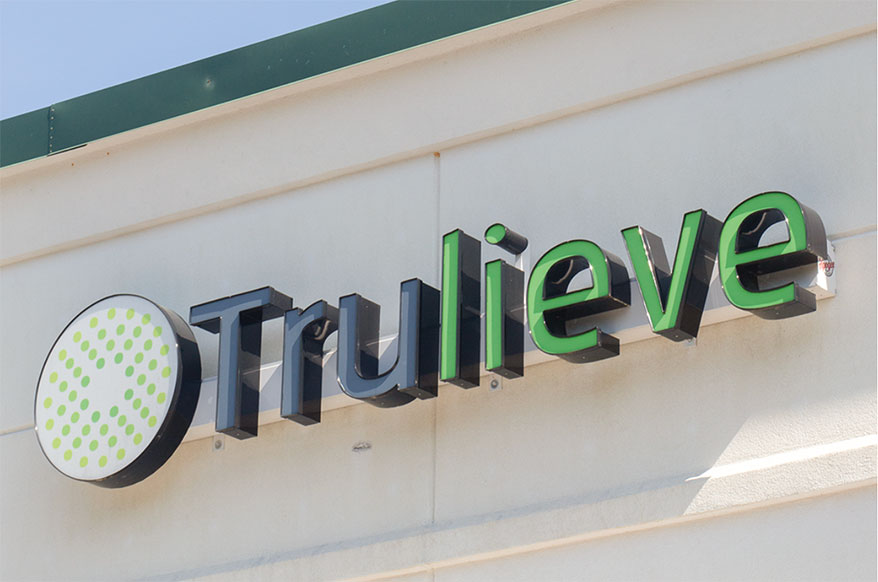
Capital corridor: CEO Kim Rivers guides Trulieve at the company’s Tallahassee, FL home base.
Can you tell us the Trulieve origin story and how it was you became CEO? What was the most important aspect of the company’s path to success, your own path to success?
I was asked to join the team early on before there were any employees and it was a group of nursery owners. It was a requirement in Florida, you had to have a nursery license [to cultivate cannabis] and you had to have been in that business for 30 years. We were three family businesses that had been in operation for a very long time and [Trulieve chief information officer] Jason Pernell, who is still here as well, and his group which had operations in California.
When I was approached, I gave this typical lawyer answer. I said, “You know what? It depends. Let’s do some research work.” I spent about six months traveling the country, going anywhere and everywhere that would allow me in. I had a ton of meetings and tours of different cultivation operations. We were primarily looking at cultivation and processing at that point, up and down the West Coast, California, Colorado.
A couple of things struck me and struck the team. Number one, there absolutely was opportunity in the industry. Second, there was a lot of white space. There were brands, but they were very, very localized brands. The concept of being an MSO had just started. What we noticed was that there was a real opportunity to scale that had not been done, effectively, at that point.
We came back to Florida and it was kind of, “Okay, if we’re going to do this, let’s do this.” It was a 2,000-page application. I still have paper cut scars. During that time—and obviously, we were successful—with a lot of hard work by the team, we achieved the highest scoring application in the state of Florida. As it relates to our success—this is going to sound maybe a little cliched—but it’s down to doing what we said we were going to do.
It’s not any more complicated than what we put down on paper in those 2,000 pages, which was exactly what it was that we were going to do for the startup phase of our business. When we were awarded our license, we were able to immediately get to work executing that plan.
Trulieve’s revenue growth since its inception in 2015 has been incredible. That said, in my view, Trulieve’s main claim to fame among the MSOs is 16 quarters of consecutive profitability going back to the first quarter of 2018. Back then, very few companies were making money, and in fact, many cannabis CEOs argued that we shouldn’t worry about profitability while pursuing growth at any cost. Essentially, the Amazon model. Take us back to the decisions that led to getting profitable so early.
Yeah, I mean, I think that we didn’t know any better. I was certainly of the belief that the goal of the business was to become profitable and to be self-sustaining and to be as insulated as possible from the volatility that can happen in the capital markets. Clearly, that is the case with respect to cannabis, with regards to volatility.
I have said this for many years—I love being CEO. But that would change very quickly if I was concerned about how I was going to make payroll, or you know, how to keep the lights on. We think having a really strong base of dollars that we’re generating, that we’re able to reinvest into the company, regardless of what happens externally, is very important.
I think we saw the importance of that during 2019, when the market did not cooperate, if you will. Some of our peers are no longer in existence or are in jeopardy because of the growth-at-all-costs kind of mentality. That goes back to what we were saying earlier about the challenges of being in cannabis. We’re already penalized in key ways, so when you put a company in that type of situation with bad financials, it gets really ugly very, very quickly.
Fortunately, we were not in that position. Instead, we were able to double down on our growth during that period of time. Really, that period is what catapulted us into being a top-tier MSO.
Trulieve acquired Harvest Health and Recreation in Arizona last May. Talk us through the motivation for that acquisition, how it’s worked out a year later and what happens to store branding, product mix and merchandising strategies when Trulieve buys a chain of stores.
We were really excited to announce the acquisition of Harvest Health—at the time, the largest transaction in U.S. cannabis history. It was time for us to diversify in a meaningful way. I’d been asked the question for a number of years, “When are you going to really flex out as a true multi-state operator?”
And the answer to that was, we weren’t ready before our board and our management team could take a very strategic approach to M&A. We evaluated our strengths, we evaluated our team members, we evaluated our capital position. It was not until the end of 2020, early 2021, that we believed we had achieved the milestones we needed to achieve to be ready for such a sizable acquisition.
At that point, we had articulated publicly that our strategy was to divide into regional hubs and to approach expansion through a regional hub model: Northeast, Southeast, Central, Southwest, Northwest. We looked at available acquisition opportunities and Harvest ticked a number of boxes for us. They had a wonderful, deep relationship with regulators and an understanding of the market in Arizona—they were the market leader in Arizona—but they also had fantastic footprints in Pennsylvania and Maryland, as well as in Florida.
From a fit perspective, it made a ton of sense. And then we just had a lot of respect for Steve White, who is the former CEO of Harvest, and how he grew that company. They got a bit over their skis in 2019. But they had since then right-sized the company and had refocused on profitability. Because of this, our cultures aligned rather well.
As you know, we’re now in 11 states as a combined company, with a market-leading retail unit and market-leading cultivation and production. We now have three of our five hubs built out at this point. The integration is going well. Steve is now our president. I feel fortunate that we get to work together every day. We have a number of very seasoned and talented executives that have joined our team as a result of the merger.

BRAND BELIEVER: Trulieve puts extra R&D oomph into developing in-house brands like Muse, top, and Sweet Talk, bottom.
So about half the stores have been rebranded now?
Yes and no. All 14 of the Harvest Florida stores were rebranded Trulieve within 30 days of closing. That was quite the feat. In Pennsylvania, those stores have been rebranded. In Maryland, new stores have been rebranded. In Arizona, we’re taking a bit of a slower approach there because Harvest has been in that market since its inception. The brand equity there is rather high.
We want to be thoughtful in terms of how we run that conversion. There are a number of Arizona stores that Harvest owned that weren’t Harvest-branded. Those will be the first to convert to Trulieve. In terms of products and merchandising, we’re introducing some Trulieve brands at the Harvest stores, as well as continuing with the Harvest internal brands.
We’ve actually blended our two product portfolios. We took the top-performing products and segmented those out by tier, so we have a rational, complete product portfolio to offer markets and we have been rolling that out through our combined platform at this point.
Mandatory vertical integration is, of course, the defining characteristic of the Florida market. Do you have to adopt different strategies with distribution, with wholesaling when you move into non-vertically integrated states?
We’re fortunate that our Florida experience afforded us a number of lessons, a main one being that efficiencies of scale are so important. As is the ability to innovate and to have a portfolio of branded products. We have a million-plus square feet of cultivation in the state of Florida. We have a very large R&D team. We’re constantly doing innovation work.
The reason why that’s important when we talk about wholesaling is that it’s all about your portfolio of products, right? It’s all about making sure that you have the products that people want, because if you have products that people want, wholesaling isn’t that difficult. Because folks are selling through your products, your velocities are high.
After you establish that initial relationship, your resale business becomes more stable. We use data to back up our experiences in terms of knowing what the customers want. An example is our Cultivar Collection, which is our ultra-premium flower brand that we have specific genetics for and specific criteria for in terms of quality.
Advertisement
Cultivar is now launched across our regional markets. In just a few short months, I think it’s now the No. 5 flower brand in Massachusetts. It sells out anytime we have it on the shelves in Pennsylvania. And it’s being introduced in Arizona as well.
That’s an example of us being able to refine our product in Florida, do a lot of AV testing, having a lot of customers to beta test products, and then bringing those products into other markets successfully.
Let’s stick with flower as the topic. How do you address the challenge of communicating the value of particular flower product in states where you have less brand awareness?
It’s really important to be able to communicate clearly to a consumer why a particular flower is priced the way that it is. You have to establish a brand around flower. We have different flower brands that are tiered, both by price point and by particular quality metrics. We just talked about the Cultivar Collection, which is our top-tier brand. We just launched a flower brand called Primo, which in an eighth, you would get a single or maybe two buds. That’s going to be the tippy-top of the colas. This is for those aficionados who really want that, you know, call it “extreme bag appeal.”
We also have Modern Flower, which is a legacy harvest brand that is our mid-tier flower at a mid-tier price point. We have Roll One which is actually a Harvest legacy brand. That’s our value product. It’s important to not only associate a price point and a strain, but also an actual brand name with that flower so customers will come to understand what the branding means. We’ve used traditional branding principles across our markets in an attempt to standardize the consumer expectation profile, although it may not be the exact same strain that you get in Pennsylvania, for example, versus Arizona, for a lot of different reasons. But there is still consistency in terms of the general approach.
Trulieve has posted 80 percent-plus revenue growth year-over-year in recent years, while most MSOs have posted much lesser gains. How much of Trulieve’s growth was the addition of Harvest and other acquisitions versus organic?
Last year, specifically, Harvest only contributed to our Q4. So on a relative basis, the majority of last year was kind of a truly standalone portfolio. That being said, we did complete seven acquisitions last year, with Harvest being one of those seven. But the vast majority of that growth was in fact organic.
I think this is also something that makes us unique, vis-à-vis some of our peers. We are very comfortable with organic growth. We are very comfortable with winning a license and then building that market from the ground up. But we’re also very comfortable with M&A. We’ve worked diligently to have multi-faceted growth strategies. We’ll continue to do that.

What percentage of Trulieve’s revenue comes from retail sales and what percentage comes from selling your products wholesale?
It’s interesting because when you look across the landscape of MSOs, there are definitely differences in terms of where we all have our origins, right? Trulieve, because our home state is Florida, we have our origins in retail. We lead with retail, if you will. I think that’s evident in the fact that we have the largest retail network of any MSO across the U.S. We’re at 164 stores today.
We feel very comfortable in selling branded product through branded retail. That happens to also be the channel that offers the most margin protection and highest level of profitability. So we love that. We love having branded product and branded retail.
That being said, it’s really important to have the flexibility to also be proficient in wholesale because of the differences in regulatory regimes. In certain markets, you cannot own more than x number of retail locations. And so having the ability to wholesale and understanding and not only having the ability, but being, you know, excellent in wholesale, having brands that folks want, and having the team and relationships there to support those brands is critical.
Let’s go from the other direction. In your own retail shops, how critical a role do products made by other manufacturers play?
In Florida, of course, it’s zero, because we’re not able to have other products on the shelves. But certainly in markets like Arizona, like Massachusetts and Pennsylvania, there absolutely are wholesale relationships with other brands that complement our house of brands. We are thoughtful in terms of product placement. We always lead with the customer in mind. We want to make sure that we have clear segmentation of shelf space because from a customer’s perspective, they’re coming in and they don’t want to be overwhelmed or confused. Why are there 20 vapes that all kind of look the same and are generally the same price point, right? To use an example of what I think is one of the one of the more crowded categories in cannabis.
We pick our vendor partners very strategically. We look at the entire assortment and the entire mix in a given retail location. We also take into account the particular demographics of our customers in that store. So a quick example—in Pennsylvania, across the state it can be very different in terms of customer demographics. Understanding that and then getting down to that local level and how a particular store is performing and what the preferences are of that particular customer base—you can’t sit still on it, because it’s constantly evolving as more and more folks find cannabis.
Kim, thank you for taking the time with us. It’s been a pleasure.
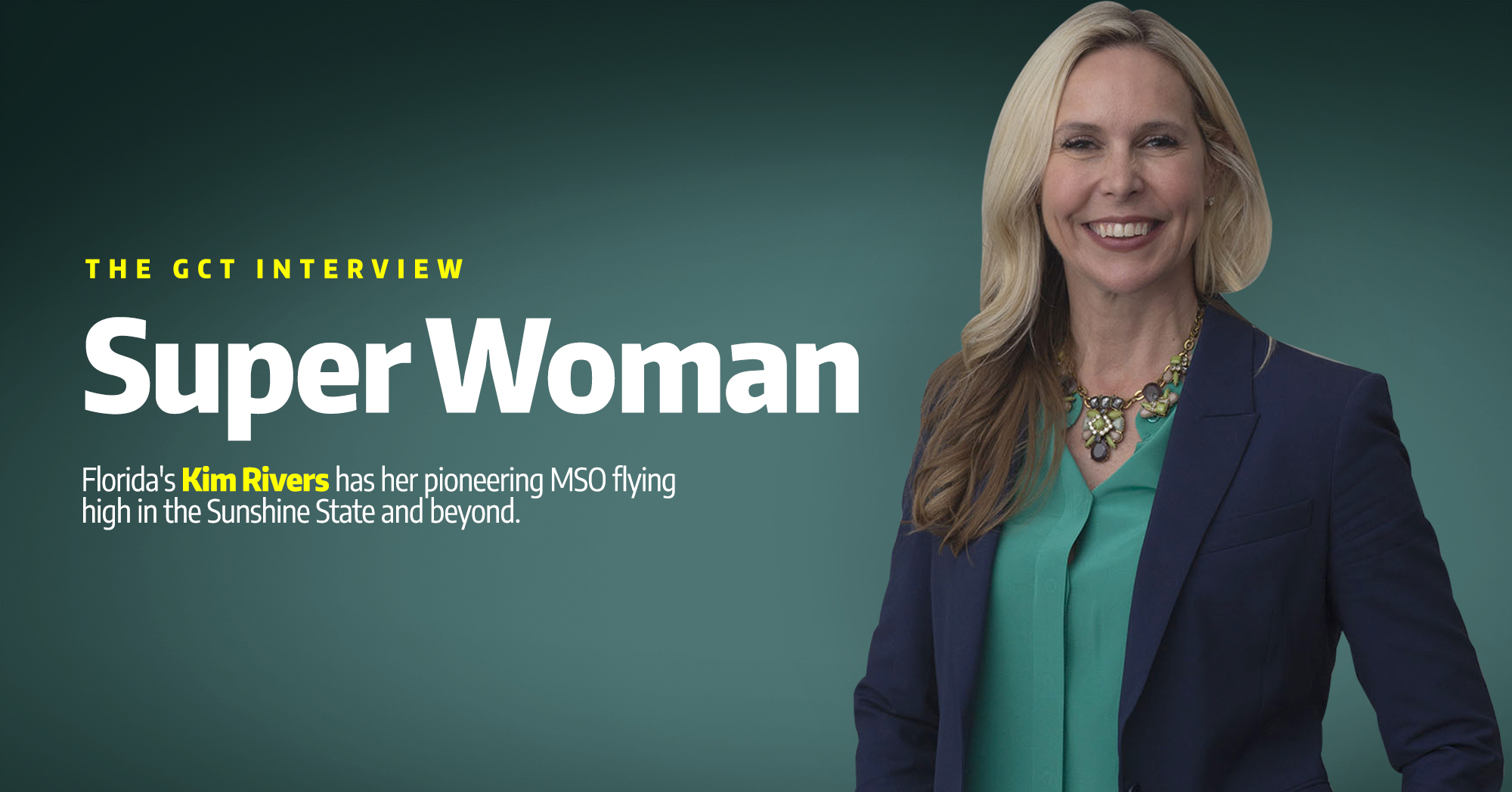

 Cover Features8 months ago
Cover Features8 months ago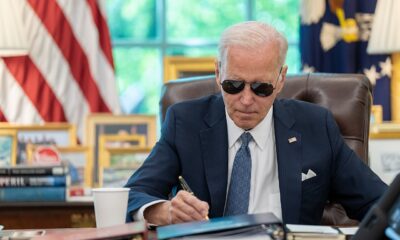
 Legal12 months ago
Legal12 months ago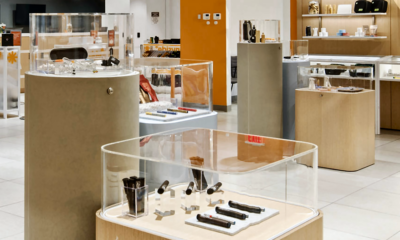
 By the Numbers11 months ago
By the Numbers11 months ago
 Business5 months ago
Business5 months ago
 Business11 months ago
Business11 months ago
 Business6 months ago
Business6 months ago
 Emerging Markets6 months ago
Emerging Markets6 months ago
 Going Global7 months ago
Going Global7 months ago



